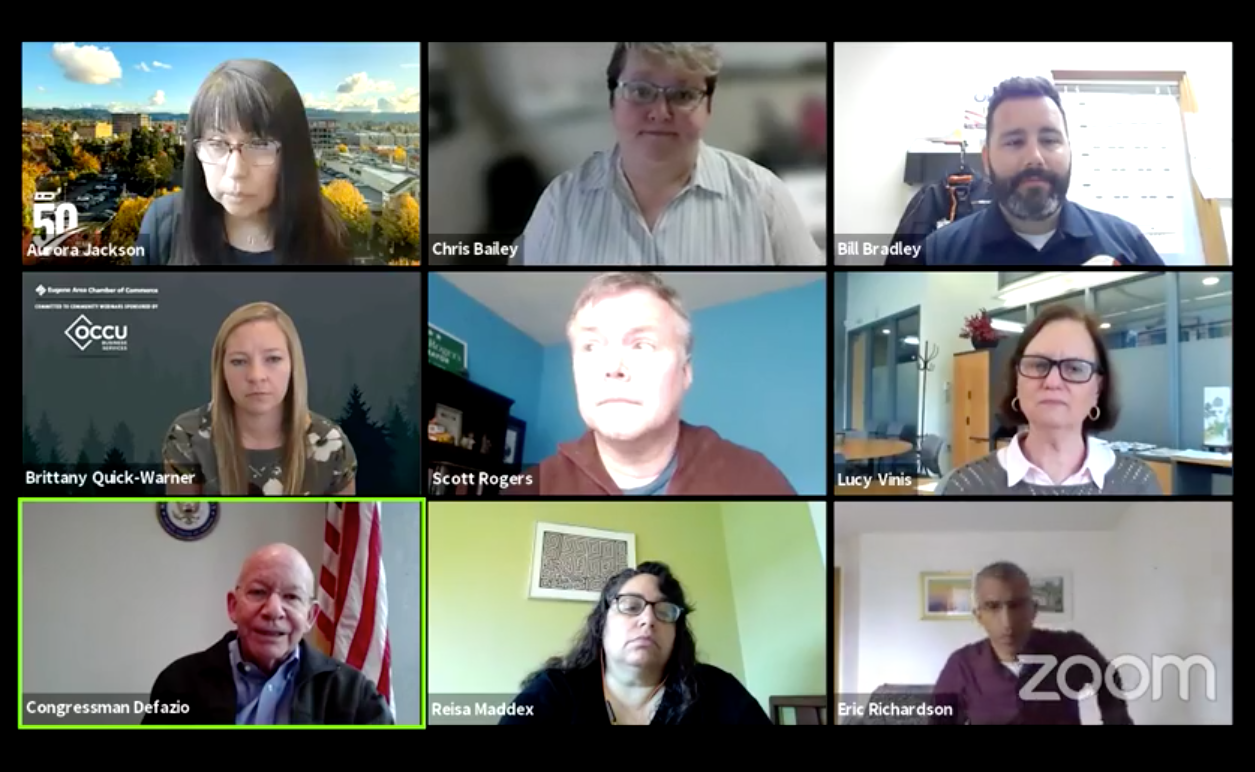Congressman Peter DeFazio facilitated a virtual roundtable with local leaders April 7 to discuss the impacts of COVID-19 on transportation and modernizing transit infrastructure in Eugene and surrounding areas.
“Transit was incredibly hard hit by the pandemic,” DeFazio said during the roundtable. “We actually had transit workers contract COVID and died.” He said in addition, transit services also saw huge revenue drops as people stayed home and stopped using transportation.
Transportation services around the country received funding from the American Rescue Plan, a COVID relief bill passed in March. While the bill provided funding for things like small businesses and individual stimulus checks, it also covers other aspects of transportation including roads, bridges, rail and wastewater, DeFazio said.
In the bill, $30 billion goes exclusively to transit. Eugene received $32.5 million of those funds to help transit mitigate the effects of COVID by providing PPE and keeping transit workers employed. This financial support, in addition to funds provided by the CARES act earlier in the pandemic, kept Lane Transit District (LTD) afloat, he said.
“The bill is spread pretty wide and the idea of that is for them to continue to provide service and keep workers off unemployment rolls,” DeFazio said.
He added later that $6 billion of the bill will specifically support “active transportation” — people who bike or walk to their form of transportation. DeFazio said he wants to encourage people’s link to transit.
Several people weighed in on the American Rescue Plan and the local impact of COVID-19 on these services. Eugene Mayor Lucy Vinis stressed that supporting local transportation could not be done without the federal government.
Bill Bradley, representing Amalgamated Transit Union (ATU) Local 737 union, said LTD had to be creative to keep people employed after it cut services.
“We had to find jobs for people to do as we cut service, which included sanitation,” Bradley says. “We didn’t have any stagnation in our investments by having this federal support.” He adds that they were able to continue bringing on electric buses too. LTD now has 11 electric buses and was able to maintain its workforce.
Eugene NAACP President Eric Richardson shared thoughts on the importance of safe, reliant transit for communities of color. He said he commends the effort Congress is giving to bring both rural and urban people together in updating infrastructure.
“It’s also an address of the fossil foolery that we’ve been engaging in,” Richardson said.
DeFazio ended the roundtable by explaining the importance of modernizing infrastructure as we move out of the pandemic.
He explained that when the Soviet Union arose, the national defense highway system, better known as the interstate highway system, was built to evacuate people from cities that would potentially be decimated by nuclear war. But the biggest threat right now is climate change, DeFazio said.
“This is the 21st century. We have a new and looming threat, that is climate change and climate crisis. We have a real opportunity to rebuild a system that is aging out in a way that’s resilient and a way that deals significantly with climate change.”
The roundtable discussion can be viewed here.
